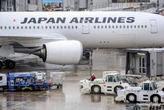As the impact of President Trump’s tariffs comes into focus during the coming months, hundreds of thousands of workers could stand to lose their jobs. Economists have warned that the tariffs could drive up the unemployment rate, and many experts fear they could spark a recession.
This upheaval could place additional stress on the current unemployment insurance program, which already fails to adequately support laid-off employees and other Americans struggling to find work.While unemployment benefits continue to be a key resource for workers—offering relief to one in six U.S. adults when unemployment surged during the pandemic—a new report from the National Employment Law Project (NELP) illustrates that they fall short of offering the level of support that workers say they need.
The limits of unemployment benefits
Of the nearly 1,500 workers surveyed, about one in five said they found that unemployment benefits were “not adequate to meet their financial needs,” though this figure varied by state. Since unemployment benefits vary from state to state, the average percentage of wage replacement could be anywhere from 29% in Alabama to 49% in Washington, according to NELP. In states where coverage was less generous, workers were more likely to express that their benefits were inadequate.
Barriers to accessing benefits
But the system also seems to be riddled with inefficiencies that make it difficult for people to receive the benefits to which they are entitled. Many respondents said they faced challenges when trying to navigate unemployment benefits, between tech issues and delayed payments.
This was exacerbated during the pandemic but continued afterward, per the NELP survey. While fewer applicants had issues with payments overall, they continued to experience underpayment and delays receiving checks, not to mention being denied benefits outright. (In fact, the share of applicants who were incorrectly denied benefits doubled from 9% to 18% in the aftermath of the pandemic.)
How employers can help
Employers, too, can play a significant role in how people navigate these benefits. Nearly a third of workers said their employer had a hand in how they approached unemployment benefits—and 19% claimed an employer actively discouraged them from applying for benefits.
On the other hand, employers were more likely to encourage highly paid and educated workers to seek out unemployment benefits. There was also some correlation with location, with workers receiving more assistance from employers in states like New Jersey, New York, and Pennsylvania.
The study indicates that Americans are in need of more generous unemployment benefits and expanded eligibility, in addition to basic improvements to how they access those benefits. At the same time, it reaffirms that any access to those benefits can be a crucial source of support for people facing unemployment, mitigating food insecurity and helping families manage the steep cost of medical bills and mortgage payments. With the looming threat of job losses, more workers may come to rely on those benefits to make ends meet.








No comments